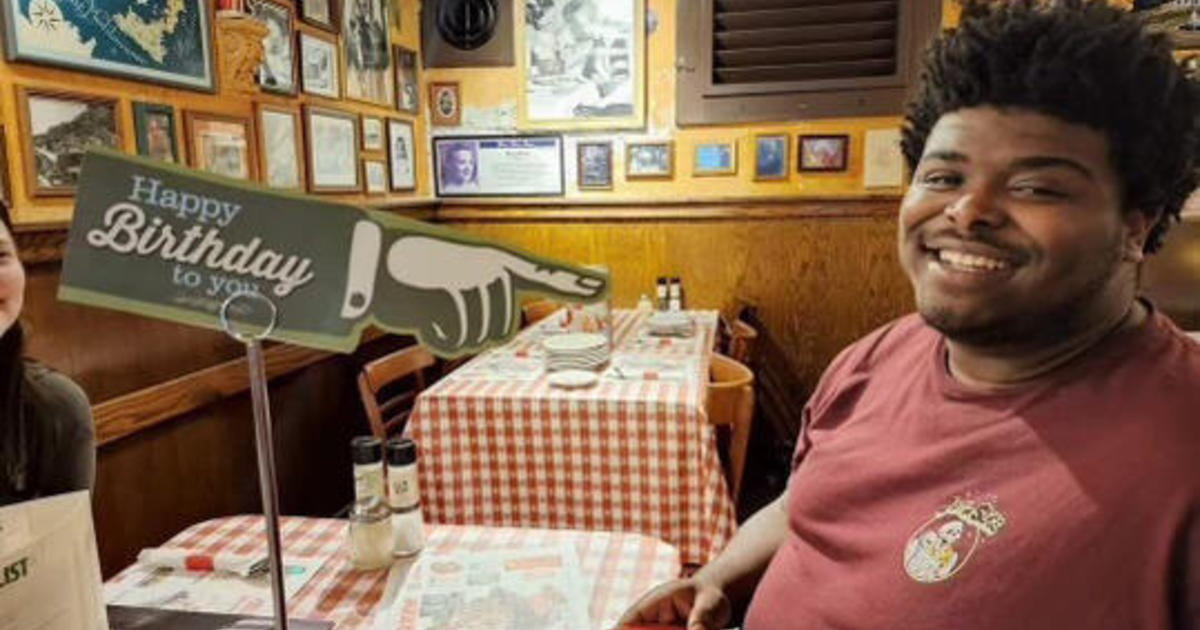Following Jolie's Mastectomy, What Are Your Options?
MINNEAPOLIS (WCCO) -- Actress, activist and philanthropist Angelina Jolie revealed in the New York Times she had a voluntary double mastectomy, and said her decision came after learning she had an 87 percent risk of getting cancer.
The actress discovered she had the potentially deadly BRCA gene mutation after losing her mother to ovarian cancer in 2007.
She said the surgeries were successful, and that her chances of getting breast cancer are now less than 5 percent.
BRCA-1 mutation is responsible for about 5 percent of all breast cancer diagnosis and about 15 percent of all ovarian cancers.
"It wouldn't ensure [Jolie] would have gotten cancer, but it creates a substantial increased risk," Allina Health Counselor Shari Baldinger said.
Baldinger said patients who are at risk for carrying the mutation should get tested so they can be proactive in their health.
"It's a simple blood test," she said. "So, physically, it's not a tough decision. But it's powerful."
The tests cost about $4,000 and Baldinger said they are covered by most insurers. If a family member does test positive for the mutation, screening other family members costs $400 to $500.
If breast cancer runs in your family, you can ask your doctor for the test. However, they will know if it's the best test to determine if you're at risk for cancer.
Doctors and genetic counselors look at the results and can determine the short-term and long-term risks.
"If you tell a 27-year-old they have an 87 percent risk of cancer, it may not be inaccurate, but then the 27-year-old is going to want her breasts off yesterday," Baldinger said. "If you point out this is your risk over the next five to 10 years, it may be more manageable. And not as overwhelming. Then we'll discuss what are the other options."
Surgery is just one of the treatment plans for BRCA patients.
The first option is to continue screening for cancer. It won't prevent it, but it can help catch it. The BRCA mutation also increases the risk for ovarian cancer, which can be hard to catch early and it spreads faster.
"Removing tubes and ovaries are less dramatic surgery than a mastectomy," Baldinger said. "But it has a more significant effect because women go into menopause."
A hysterectomy is recommended if the woman is younger and done having a family. After understanding the immediate and long-term risks, some patients, such as Jolie, opt for surgery.
Dr. Margit Bretzke, a general surgeon at Abbott Northwestern's Piper Breast Center, said nationally, a majority of people who carry BRCA-1 or BRCA-2 don't do a prophylactic or preventative mastectomy surgery.
The third option is chemotherapy prevention, and taking medicine that will lower your chances of getting cancer.
Next, doctors recommend looking at which lifestyle changes you can make to be healthier.
"If it's good for your heart, it's generally good for your breasts -- except for red wine," Bretzke said.
Doctors stress that having the BRCA mutation doesn't mean you won't live a full, healthy, and happy life.
"There are women who have this genetic risk and live to be 90, and don't get any cancer," Baldinger said.



